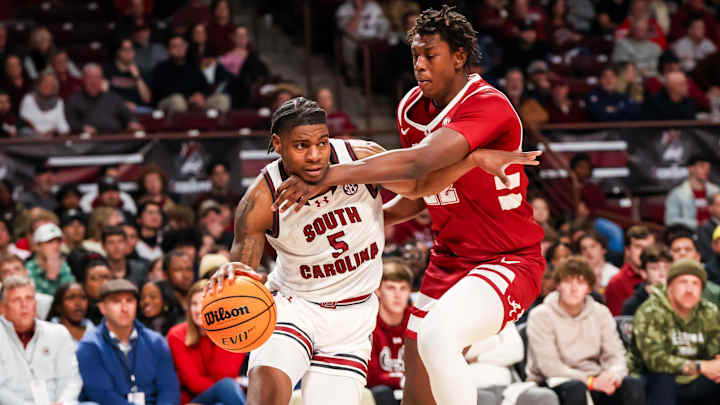Alabama basketball had a historic 2023-24 season, making its first-ever Final Four. But even with that success, not everyone stuck around. Six scholarship players entered the transfer portal, hoping for better opportunities elsewhere. Now that the 2024-25 season has wrapped up, let’s take a look at how those transfers actually did.
Davin Cosby
At Alabama, Cosby barely saw the court—only eight minutes a game and 3.6 points. At Wake Forest, he played more and bumped his scoring to 5.6 points in 17 games. He’s now headed to Kennesaw State to play for former Bama assistant Antoine Pettway.
Rylan Griffen
Griffen was a solid piece of Bama’s Final Four run, averaging over 11 points. But after transferring to Kansas, he struggled a bit, putting up just 6.3 points with lower shooting percentages. He’s back in the transfer portal now.
Kris Parker
Parker didn’t play at all in his first year at Alabama (he redshirted), and at Villanova, he didn’t do much either—just 2.6 points in 10 minutes per game. He entered the portal again in early April.
Nick Pringle
Pringle might be the one who benefited the most from transferring. At Alabama, he averaged 6.8 points and 5.1 rebounds. At South Carolina, those numbers jumped to 9.5 points and 6.3 boards. He started every game too. Still, he’s looking for a new team after entering the portal again.
Mohamed Wague
Wague had limited minutes at Alabama, and while his time increased slightly at Oklahoma, his stats only slightly improved—3.9 points and 3.1 rebounds. He’s staying at Oklahoma for another year.
Sam Walters
Walters’ numbers didn’t change much with his move to Michigan. He played the same amount and averaged around 5.4 points, just like he did at Bama. He’s also back in the portal.
The Verdict
Out of the six, Nick Pringle seemed to have the biggest glow-up. The rest either stayed about the same or didn’t get much better. A few are already looking for their next team, which says a lot. With Alabama bringing in new talent and transfers of their own for 2024-25, it’s clear the competition was tough. Still, you’ve got to wonder—what if some of them had stayed?
